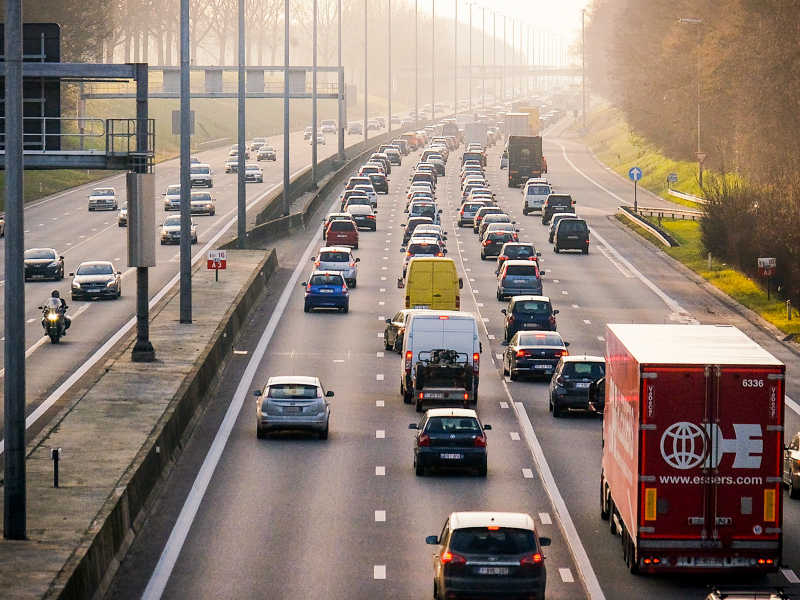Ecoscore
07.11
2007
TML was commissioned by the Flemish government to prepare a paper on the use of an ecoscore for traffic tax reform, which examines both the costs and benefits of proposals for cars and trucks. The recommendation is to opt for an intelligent kilometre charge that takes emission standards and usage into account.
In July 2006, the Flemish Government gave its agreement in principle to the use of an ecoscore in traffic tax reform. The purpose of this paper was to examine the ecoscore passenger car tax proposal in terms of costs and benefits for Flanders. We also analysed another proposal: the reform of the annual tax on trucks.
Trucks would receive an increase or decrease on the current (annual) road taxes according to the engine's Euronorm. Trucks that have a particulate filter installed or that already meet a future emission standard would get a discount. The proposed tax reform is very complex, is likely to have little effect, and increases current tax revenue at the expense of future tax revenue. It would be better to prepare a robust, intelligent road pricing system that allows differentiation by Euronorm, location, and (later) time of use. Old polluting trucks will then automatically be restricted in their use.
The environmental damage of passenger vehicles is especially great for diesel cars, which pollute significantly more than petrol cars. Fiscally discouraging diesel cars is the most urgent and obvious measure. This could be introduced in the short term by higher excise duty on diesel fuel or by a higher vehicle tax on owning a diesel car. A taxation based on a simplified ecoscore (Path 1) makes sense, provided the differentiation by CO₂ emissions is omitted. CO₂ costs are already charged more than necessary through excise duties on fuel. Thus, an additional tax on CO₂ in the transport sector does not make sense; it would only largely incentivise excise savings. The introduction of a tax system based on a full Ecoscore offers little added value compared to a tax system based on the Euro standards and, moreover, is almost administratively impossible, as it would require additional homologation tests for most cars.
In July 2006, the Flemish Government gave its agreement in principle to the use of an ecoscore in traffic tax reform. The purpose of this paper was to examine the ecoscore passenger car tax proposal in terms of costs and benefits for Flanders. We also analysed another proposal: the reform of the annual tax on trucks.
Trucks would receive an increase or decrease on the current (annual) road taxes according to the engine's Euronorm. Trucks that have a particulate filter installed or that already meet a future emission standard would get a discount. The proposed tax reform is very complex, is likely to have little effect, and increases current tax revenue at the expense of future tax revenue. It would be better to prepare a robust, intelligent road pricing system that allows differentiation by Euronorm, location, and (later) time of use. Old polluting trucks will then automatically be restricted in their use.
The environmental damage of passenger vehicles is especially great for diesel cars, which pollute significantly more than petrol cars. Fiscally discouraging diesel cars is the most urgent and obvious measure. This could be introduced in the short term by higher excise duty on diesel fuel or by a higher vehicle tax on owning a diesel car. A taxation based on a simplified ecoscore (Path 1) makes sense, provided the differentiation by CO₂ emissions is omitted. CO₂ costs are already charged more than necessary through excise duties on fuel. Thus, an additional tax on CO₂ in the transport sector does not make sense; it would only largely incentivise excise savings. The introduction of a tax system based on a full Ecoscore offers little added value compared to a tax system based on the Euro standards and, moreover, is almost administratively impossible, as it would require additional homologation tests for most cars.


